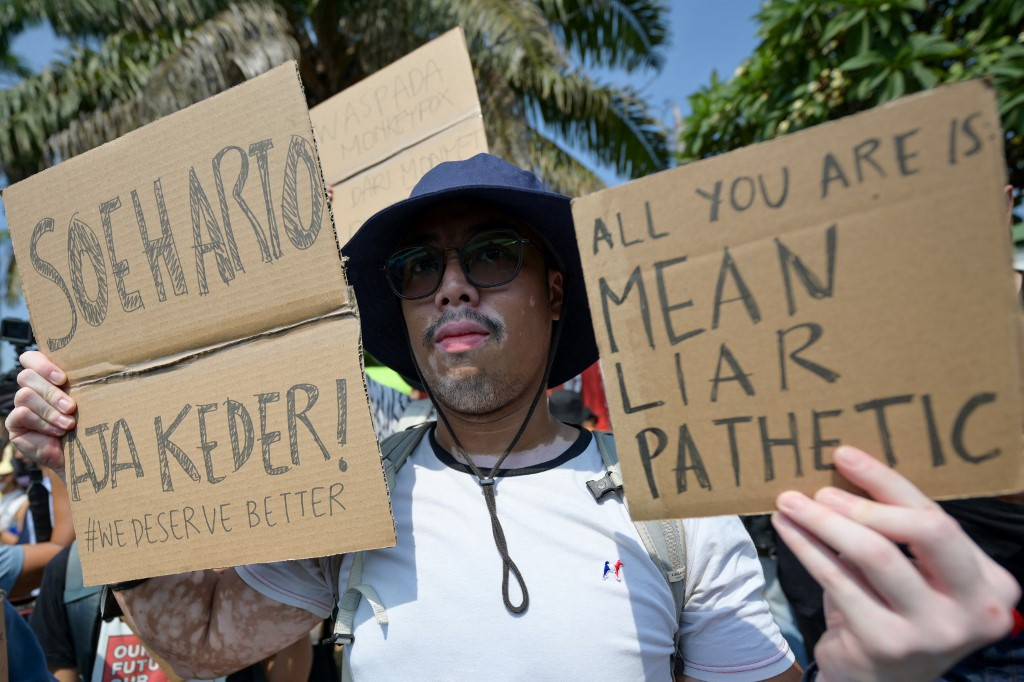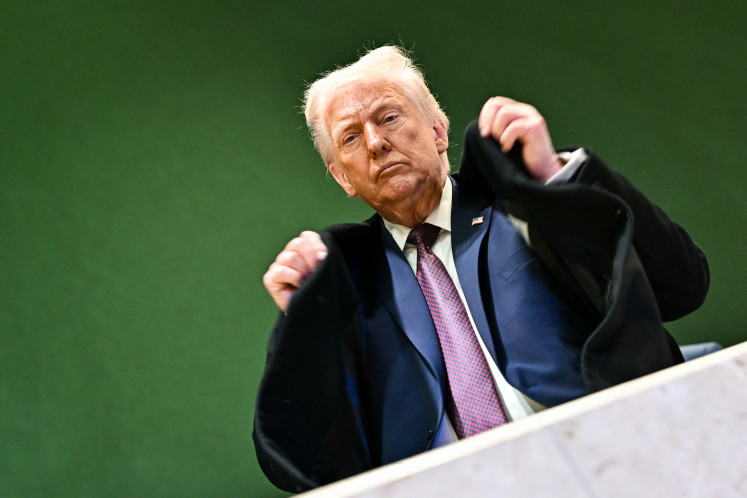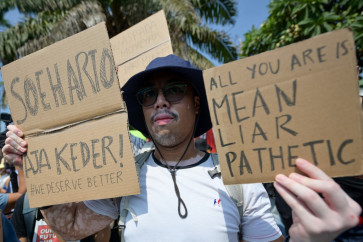Popular Reads
Top Results
Can't find what you're looking for?
View all search resultsPopular Reads
Top Results
Can't find what you're looking for?
View all search resultsForeign aid can support democratic resilience in a changing Indonesia
Western donors need to maintain a balanced approach between supporting the government and preventing the country's overdependence on China while preserving democratic values.
Change text size
Gift Premium Articles
to Anyone
R
ecent rallies in Indonesia against the planned changes to regional election rules have brought up memories of the student protests that led to Soeharto's downfall in 1998. While both events represent public discontent, the contexts differ.
In 1998, Indonesia was transitioning from authoritarianism to democracy. Today, while the democratic framework exists, there are indications of backsliding, and recent demonstrations show the continued difficulty of maintaining democratic governance.
International financial institutions and development agencies played an important part in Indonesia's Reform movement in 1998, helping to shape the democratic institutions that are currently under strain. For instance, the IMF's assistance during the 1997 Asian Financial Crisis provided a significant rescue. However, the tight economic conditions that followed, while stabilizing the economy, caused widespread unrest and contributed to Soeharto's downfall.
Post-Reform, international support remained important in Indonesia's democratic transition, with multilateral organizations and development agencies, mostly from western countries, assisting with crucial institutional reforms, including the development of the Corruption Eradication Commission (KPK) and the Constitutional Court (MK). During this time, conditionalities related to foreign aid were notably effective, as Indonesia, which was in the midst of an economic crisis, had little choice but to accept these terms. Western donors held huge influence, with no major competitors providing alternative funding sources.
Today, however, the geopolitical situation has changed. Since the Paris Declaration on Aid Effectiveness in 2005, the Accra Agenda for Action in 2008, and the Busan Partnership in 2011, donors have agreed to give recipient countries more control over their development aid. Western donors also acknowledged the competitive presence of other global players, such as China. This shift makes it challenging for donors to influence the governance of recipient countries directly.
Indonesia's conditions have likewise changed significantly. In 1998, it was a low-income country that relied heavily on foreign aid. Now, as an upper-middle-income country, Indonesia's dependency on foreign aid has decreased.
During and after the 1997–1998 crisis, foreign aid was a crucial component of Indonesia's state budget. Foreign aid's share by 2023 was far smaller. The changes on the donor and recipient sides have changed the power dynamics in foreign aid.


















